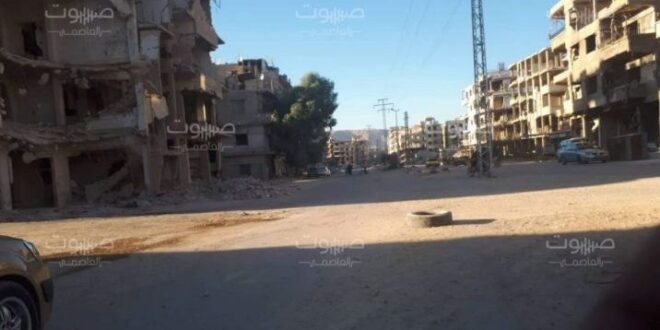Assad’s militia is deliberately sowing security chaos among different military factions originating from the same towns or regions, Orient Net writes.
In recent days, the governorate of Damascus countryside has experienced a resurgence of assassinations, security turmoil, and an alarming proliferation of weapons. These incidents have been occurring across different areas, resulting in the loss of lives and injuries among members of the Assad militia, its auxiliary forces, and innocent civilians. These sporadic attacks have taken place in towns such as Zakia, Beit Jinn, al-Hama, Hawsh Arab, Madaya, al-Jibbah, and other regions. These unsettling events raise concerns about the prevailing security situation and raise questions about the objectives pursued by the Assad regime in the governorate.
Chaos of gun breakdown
According to journalist Mohammed al-Sheikh, residing in Zakia, it is no surprise that areas affected by settlements and displacement in the Damascus countryside are now plagued with lawlessness concerning weapons. This situation has arisen due to the Assad regime’s recruitment of numerous individuals from these areas into their ranks, specifically the Fourth Division, Military Security, and the Tiger Division. These individuals openly carry weapons and resort to using them to resolve any conflicts, resulting in fatal consequences, such as the recent incident at the Beit Jinn farm.
Al-Sheikh further emphasized that the Assad regime has recently begun exposing many former opposition figures who had previously provided services to their militias. This exposure is often carried out through settlement initiatives or the exchange of weapons caches for the release of detainees or the prevention of military operations in certain areas. Examples of this strategy can be seen in Hama, Zakia, and Beit Jinn.
Fabricating clashes between militias
According to local sources in Western Ghouta, it appears that Assad’s militia is deliberately sowing security chaos among different military factions originating from the same towns or regions. This strategy has been witnessed in Beit Jinn, Zakia, and Arab monsters, where clashes are instigated between militia members and former opposition members who did not participate in settlement processes or align themselves with the Assad regime’s militias.
The aim behind this tactic is to identify those former opposition members who still possess weapons within these areas. Subsequently, security reports are compiled on these individuals, leading to the issuance of wanted lists and calls for new settlement processes in these towns. The condition for these settlements is the surrender of weapons, with the threat of a military assault on the area if compliance is not met. A similar situation occurred in Hama last May when Assad’s militia demanded the extradition of 30 wanted individuals and threatened to storm the city if their demands were not fulfilled.
In a related context, journalist “Musab Khubaib” from Damascus countryside remarked that previous settlement processes in the governorate yielded no substantial results. The Assad militia tends to make empty promises to the people, and there have been no documented cases of individuals being removed from security lists after settlement agreements. On the contrary, dissidents who participated in settlements have been arrested by Assad’s militia and confined to Sednaya prison.
Khubaib further added that these settlement processes are merely formalities, involving periodic surveys of wanted individuals and assessments of the number of weapons possessed by opposition members not affiliated with Assad’s militias. This pattern has been observed in the majority of settlements throughout rural Damascus.
 Eurasia Press & News
Eurasia Press & News



